- Home
- Cheryl Bolen
Countess by Coincidence Page 2
Countess by Coincidence Read online
Page 2
He smiled to himself as he read over the newspaper advertisement that had drawn more than three dozen responses.
Gentleman of modest means seeks a gently-bred woman to enter into matrimony. The prospective wife will receive the one-time sum of £100 but will hereafter maintain separate abode from the prospective groom and make no further claims upon the husband.
"As irregular as it is, I can assure you the marriage contracts I've drawn up are perfectly legal. I've put in the bride's name of . . ." Mr. Wiggington consulted a letter. "Miss Margaret Ponsby of Windsor."
"I selected her because her name sounded like a name for which my grandmother would approve."
“I’ve been to Windsor and obtained the lady’s signature on the contracts.”
John was most pleased with himself.
* * *
No matter what straights John steered himself into, he’d always made it a point to never borrow money from his friends. He had no greater friend than Christopher Perry, who happened to be as wealthy as a nabob. As the only son after five daughters, Christopher Perry’s parents had lavished him with affection, attentions, and anything that their fortune could purchase.
John had always known he could depend upon Perry to help him in any financial difficulties, but it was a line he had always preferred not to cross. In his mind, it was as if crossing that line would part him from Perry as effectively as a saw parts a limb from a tree.
An efficient, thoroughly English butler answered the door of the Perry’s fine mansion on Piccadilly and, immediately recognizing John, showed him into the library. “I will inform Mr. Perry that your lordship is here.”
A moment later, Perry strolled into the chamber. He was a fine-looking fellow who always dressed with impeccable taste. If one looked closely enough at him one might detect a few hints of the Perry family’s origins as jewelers of the Jewish faith—a religion long ago abandoned by the family. There was the olive complexion associated with those in Mediterranean countries, and the prominent nose also hooked in the same manner as those whose ancestors had come from Biblical lands.
The Perrys had adopted thoroughly English ways. Perry’s late father had even won a seat in the House of Commons.
“I am surprised to find you out and about so early,” Perry said, by way of a greeting. “It is but two in the afternoon. Do you not usually sleep until four?”
“I had to see my bloody solicitor today on a matter of importance.”
Perry quirked a brow.
“I’ve decided to get married.”
Perry’s dark eyes widened. “The hell you say! Who in the bloody hell do you plan to wed? Mind you, if it’s Mary Lyle, I’ll tie you to that bloody chair and not allow you to leave this house.”
He had been moving toward John but upon hearing the announcement altered his path and went to snatch a bottle of port. “This calls for a bloody drink. Join me?”
“Don’t mind if I do.”
After Perry poured two glasses and handed one to his friend, John said, “It’s not Mary Lyle. Haven’t seen her in more than a month—not since I had to sell my carriage.”
Perry, nodding knowingly, dropped onto a chair near John. “A title can only go so far in impressing the ladies.”
Now John raised a brow. “I wouldn’t actually call her a lady.”
“No, I don’t suppose one would.” Perry took a long swig of the port. “I know you too bloody well. You can’t be marrying because I would know it if there was an interest in that direction.” He gave an exaggerated shudder. “Beastly business. Marriage.”
John downed half his glass. “You’ll get no argument from me on that.”
“Then what, pray tell, are you referring to with this talk of marriage?”
John sketched out the details of his plan. “So you see, old boy, I’m going to ask that you be my best man in this bogus marriage. And I shall need you to supply the promised hundred quid to the obliging bride. I’ll repay you as soon as my grandmother makes a settlement on the mature man she thinks marriage will make me.”
“Of course, dear fellow. Anything for a friend.”
John got up and shook his hand.
“What if the lady’s a real dragon?” Perry’s face screwed up as if he’d just sucked rotten lemons.
“I pray I only have to see her once.”
Perry stood and showed him to the door.
“Will you meet me at St. George’s tomorrow morning?” John asked.
“St. George’s Hanover Square?”
John nodded. “And bring the hundred quid to pay my bride.”
“What a wretched word. Bride. Makes me feel like the morning after imbibing two bottles of brandy.”
“It’s not a real bride.”
"Tell me, Finch, is your grandmother to join us at St. George's in the morning?"
"I invited her but did not tell her what was going to occur."
* * *
The following morning, the unfortunate spinster, Margaret Ponsby, stood in front of St. George's Chapel within the grounds of Windsor Castle. The wedding day she had awaited for six-and-forty years now looked as if it were nothing more than a cruel hoax. Her bridegroom, Mr. Beauclerc, was to have met her here more than an hour ago. At first she thought someone had played a heartless joke upon her, but no one had forced her to respond to the notice in the Morning Chronicle. There was also the fact that the solicitor's clerk had gone to considerable trouble to obtain her signature upon the marriage contract.
Chapter 2
Ever since her conversation with Elizabeth, Margaret's mind had been occupied with her sister's sage observations. What she wanted most, she had to admit, was to be wed and to have children. She had, therefore, decided to pray most fervently that she be attracted to eligible gentlemen.
She wondered what perverse ancestor had imbued her with this mysterious craving of a most ineligible bachelor. Why could she not be like Clair? Clair could speak intelligently upon any subject—and Clair was attracted to a man who was highly respected. In her wildest imagination, Margaret could not imagine Clair ever countenancing an association with a known rake.
Accompanied by her maid, Margaret had silently strolled through Green Park and was now aimlessly walking the streets of Mayfair. She preferred those days when she had purpose, days when she had the opportunity to see the children at Trent Square. What a great feeling of accomplishment she derived from instructing them upon the pianoforte. They were such eager little sponges, and each of them had shown amazing progress.
As they neared Hanover Square, she decided to go into the church there. She would light a candle and pray that she could be more like Clair, that she could be attracted to an honorable gentleman.
She might light a second candle and beg the Almighty to instill her with the ability to communicate with gentlemen. It was a curse to be so painfully shy.
The church's huge timber door squeaked when she opened it. It was dark and cold inside, but she had the church all to herself. She walked down the center nave, turned to a side altar, where she lighted a candle, then dropped to her knees and began to pray.
Dear Lord, I feel beastly selfish wasting Your Divine time with my insignificant request, especially since I am well aware of the many advantages of my birth. I am profoundly grateful that You saw fit to place me in a loving family. I will continue to minister to the less fortunate whether or not You answer my prayer. My prayer is this: I beseech You to guide me to a noble man. (And it would be lovely if I could shed my eternal shyness.)
The door opened, and she heard men's voices. Because they were the voices of men of Quality, she suspected one of them must be the vicar here. Would he remember her? No doubt he would remember Caro. Everyone always remembered her lively sister. Perhaps he would mistake her for the more popular sister.
Because her nature was to be as unobtrusive as possible, she continued peering at the flickering candle and beseeching her heavenly Father to change her deplorable ways.
To her
complete surprise, one pair of footsteps came toward her, and a moment later a gentleman said, "Are you Miss Ponsby?"
Technically, she was, though she had always been addressed as Lady Margaret Ponsby. No one ever called her plain Miss Ponsby. She was, after all, the daughter of a duke. The vicar should know that. She turned to observe him.
But it was not the vicar. It was Lord Finchley!
He peered down at her.
How was it that he knew her name?
Yesterday she had said no man had ever caused her heartbeat to race. That was no longer true.
To save her life, she could not have answered him. Her gaze spun away. All she could do was nod.
Though she wished to drink in his supremely masculine handsomeness, she was too shy to stare at him.
"Miss Margaret Ponsby?"
Averting her gaze, she nodded again. What could possibly account for him knowing her name?
"You've brought someone with you?"
She nodded. Why he wished to know that, she had no idea.
"Good. My friend Perry—Christopher Perry—will be my witness." He turned to speak to his companion. "Be a good man and give the lady the hundred guineas."
Now the other man came toward them. Dear Lord, was he going to give her money? Had they heard about the needs at Trent Square? She was certain she could put the money to good use there.
His lordship must not be nearly so dissolute as he would have people believe.
Christopher Perry handed her a heavy pouch.
She found her voice. "Thank you," she whispered hoarsely as she began to stuff the money into her reticule.
A side door near the sanctuary opened, and she looked up to see the vicar standing there wearing his vestments.
"Will you not accompany me to the altar, Miss Ponsby?" Lord Finchley asked.
Keeping her gaze averted, she stood and did as he bid. It was not in her nature to question a gentleman. She was far too obliging. And shy.
"Where is your companion?" asked he.
"My maid is at the rear of the church." She was rather astonished that she had actually been capable of constructing a complete sentence.
"She will need to sign the marriage certificate," the vicar said.
Marriage! His lordship must be planning on marrying. Today. That would explain why the vicar was dressed as he was.
She suddenly felt very low. Every shred of decency within her knew how utterly unsuitable was Lord Finchley. Nevertheless, the thought of him marrying another woman was rather like contemplating the demise of a loved one. She was seized with envy toward the bride. How shameful to display one of the seven deadly vices in the house of God, but she was powerless to suppress this marked jealousy that infused every pore of her body.
To her astonishment, his lordship offered her his hand. Always complacent and accommodating, she placed her gloved hand in his and rose. He led her to the altar.
Her heartbeat began to roar—a most singular occurrence, to be sure. Where was the bride? Lord Finchley must wish for Margaret to be a witness at the ceremony.
She was truly astonished that he'd known her name. She was, of course, acquainted with his grandmother, but she had never come face-to-face with the grandson. Ever.
Her first thought was that he had her mixed up with Caro. Men always remembered Caro, and there was a strong resemblance between the two sisters. But he had distinctly called her Miss Margaret Ponsby.
"Are you ready to begin, your lordship?" the vicar asked.
Lord Finchley nodded.
Were she not so meek, Margaret would have inquired about the bride. Was this marriage to be by a proxy? Perhaps his lordship needed her to stand in for the bride. What a pity it was that she could do nothing more than stand beside him and pray he did not detect the trembling that seized her.
To her further astonishment, Lord Finchley took her hand in his. In her two-and-twenty years, no man had ever before held her hand. The intimacy of such a simple act nearly overpowered her. Never before had improper thoughts visited her whilst in the house of the Lord. Until now.
It was most shameful that this hand-holding had ignited an odd stirring low in her body. Dear God! Added to her sin of envy (for try as she might, she could not suppress her newly acquired supreme jealousy of Lord Finchley's betrothed) was her newly acquired vice of lust! If she remained in the house of God much longer, what other new vices would blemish her? She might never again be permitted in so sacred a place. A long-ago Ponsby ancestor must have cursed her.
Her nerves were in such a state of agitation she paid no heed to the vicar's words. Until Lord Finchley was prompted.
The man she had worshipped from afar turned to her, held both her hands, and gazed into her eyes.
The vicar spoke. "Wilt thou, John Beauclerc, take this woman to be your wedded wife. . ."
Lord Finchley nodded. "I will."
A moment later the vicar addressed her. "Wilt thou, Margaret Ponsby, take John to be your husband?"
Far be it from timid Lady Margaret to rock this boat. Clearly these two men wished for her to answer in the affirmative. Therefore, she nodded.
The balding vicar offered her a soft smile. "Repeat after me. I, Margaret Ponsby. . ."
She swallowed. Her lashes lifted, and she peered into his lordship's eyes. They were black and intense, and she was startlingly aware of the connection between them, the connection anchored by their clasped hands. With prompting from the vicar, she completed the whole long sentence without stumbling. "I, Margaret Ponsby. . . take thee, John Beauclerc, to my wedded husband, to have and to hold from this day forward, for better for worse, for richer for poorer, in sickness and in health, to love, cherish, and to obey, till death us do part, according to God's holy ordinance; and thereto I give thee my troth."
Why she had not been asked to use the name of the absent wife, Margaret did not know. As they stood there in the sanctuary, their hands linked, she allowed herself to imagine what bliss it would be to wed John Beauclerc, the Earl of Finchley.
When the vicar asked his lordship to put the wedding ring upon Margaret's finger, a woman's voice interrupted.
Margaret and Lord Finchley whipped around and saw the dowager countess slowly rising to her feet from the first pew and moving toward them. "I wish for Lady Margaret to have this emerald ring. It has been handed down to each Countess of Finchley for the past two hundred years."
Oh, dear. She really couldn't take the real countess's emeralds. But, of course, Margaret was far too reserved to ever protest.
Lord Finchley's eyes widened. "Lady Margaret?"
The dowager presented her grandson with the emerald-encrusted ring. "You've done very well for yourself, John. To think, our new countess is a duke's daughter!"
Chapter 3
John was incapable of speech. Good Lord, was this young woman the sister of his grandmother’s Berkeley Square neighbor, the Duke of Aldridge? Isolated memories rushed to his numbed brain. Wasn’t the Duke of Aldridge’s family name Ponsby? No wonder this Margaret looked vaguely familiar to him. He’d likely seen her entering and leaving Aldridge House dozens of times over the years. But how in the deuce had she ended up here today?
Dread strummed through him. Windsor. Oh, dear God, was not the chapel at Windsor Castle also called St. George’s? He now had no doubts the Miss Margaret Ponsby of Windsor—the lady who had responded to his newspaper advertisement—was likely standing at St. George’s Chapel right now waiting for her bridegroom—and her one hundred pounds.
How in the devil had Lady Margaret Ponsby ended up at St. George’s Hanover Square at the precise time he had scheduled his sham wedding? He had told no one save his solicitor, Perry, and—at the last minute—Grandmere. No one else knew of the ceremony, and he was relatively certain none of the parties who did know would have told Lady Margaret.
Even allowing for the preposterous coincidence of names, why had she consented to go through with the ceremony? He took an instant loathing to the demmed woman.
If she thought to snare him in a real marriage, she was delusional.
The sneaking, conniving spinster had even taken the Finchley emerald ring!
He wished like the devil his solicitor were here. He needed advice on how to dissolve this marriage.
He also needed to have a private word with this . . . this usurping woman. Which was not going to be easy, given that his grandmother was fawning over the bogus Finchley bride with the reverence one would accord a bloody queen.
“And where is the duke?” Grandmere asked Lady Margaret.
“He’s doing the assizes in Middlesex.”
“My late husband hated those days when he had to sit through the assizes.” Grandmere lowered her voice. “I do hope your brother’s not vexed that you’re marrying a . . . a purported rake for I assure you Finchley will prove to be a fine man as well as a fine husband. He needed but the influence of a wife to tame him.”
“My brother was not consulted. I’m of age,” Lady Margaret said.
Which explained why she did not need her dukely brother’s consent to the wedding. In his entire life John had never countenanced the striking of a woman. Until now. He was possessed of an urge to slap this woman whose subterfuge had ensnared him. Of course, he could never raise a hand to a lady.
John’s best hope was that the woman’s ducal brother would insist on dissolving this marriage of his sister to a notorious rake. He must talk to Wiggington to see how one went about extricating oneself from such an ecclesiastic mess.
“I shall have a ball to introduce the Earl and Countess of Finchley to Society.” Grandmere peered at John. “Will week after next be agreeable to you?”
He shrugged. “Um, it may interfere with . . . our wedding trip.” He forced a smile. “So good of you to come today, Grandmama, but I am most anxious to be with my . . . bride.”
His grandmother threw her arms around him for a long hug. “I’m so happy you’ve chosen to wed, and I couldn’t be happier with your choice of wife. Lady Margaret will make a wonderful countess.” Her voice lowered to a whisper. “Hopefully it will allow her to come out of her shyness, too.”

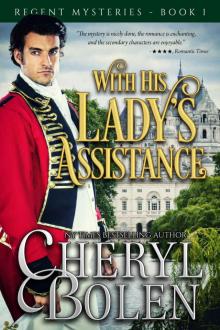 With His Lady's Assistance (The Regent Mysteries Book 1)
With His Lady's Assistance (The Regent Mysteries Book 1)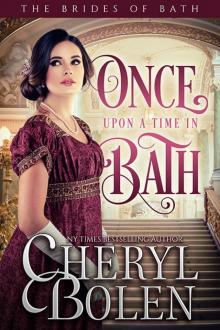 Once Upon a Time in Bath
Once Upon a Time in Bath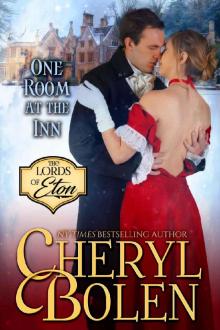 One Room at the Inn (The Lords of Eton Book 4)
One Room at the Inn (The Lords of Eton Book 4)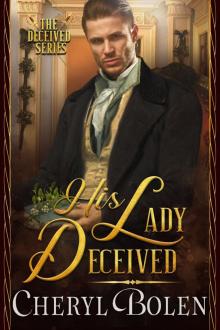 His Lady Deceived
His Lady Deceived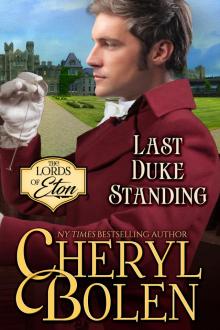 Last Duke Standing
Last Duke Standing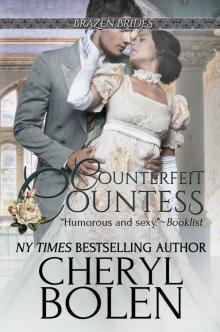 Counterfeit Countess: Brazen Brides, Book 1
Counterfeit Countess: Brazen Brides, Book 1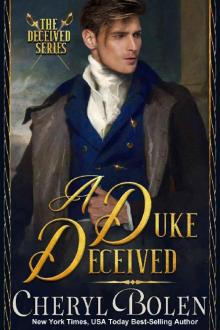 A Duke Deceived (The Deceived Series Book 1)
A Duke Deceived (The Deceived Series Book 1)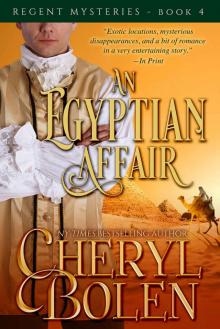 An Egyptian Affair (The Regent Mysteries Book 4)
An Egyptian Affair (The Regent Mysteries Book 4)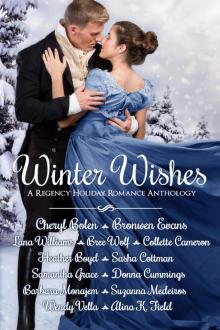 Winter Wishes: A Regency Christmas Anthology
Winter Wishes: A Regency Christmas Anthology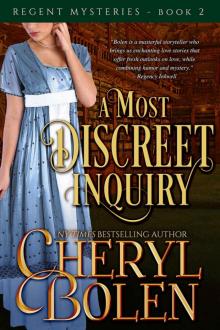 A Most Discreet Inquiry (The Regent Mysteries Book 2)
A Most Discreet Inquiry (The Regent Mysteries Book 2)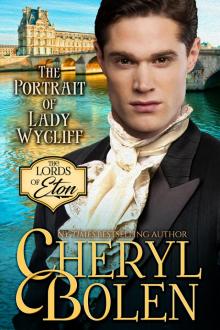 The Portrait of Lady Wycliff
The Portrait of Lady Wycliff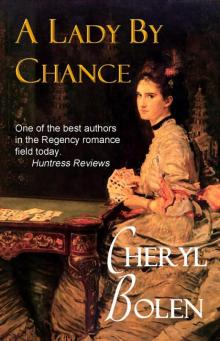 A Lady by Chance (Historical Regency Romance)
A Lady by Chance (Historical Regency Romance)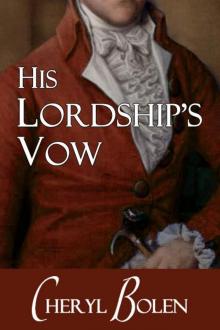 His Lordship's Vow (Regency Romance Short Novel)
His Lordship's Vow (Regency Romance Short Novel)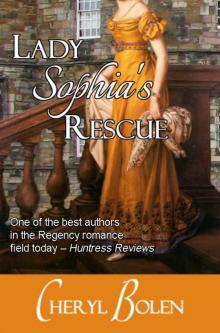 Lady Sophia's Rescue (Traditional Regency Romance)
Lady Sophia's Rescue (Traditional Regency Romance)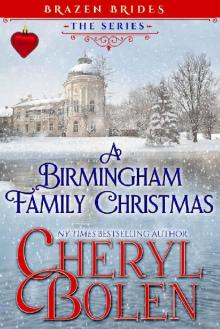 A Birmingham Family Christmas
A Birmingham Family Christmas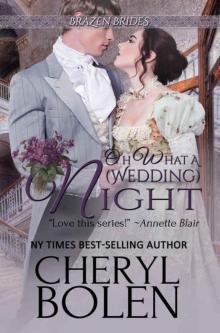 Oh What A (Wedding) Night (Brazen Brides #3)
Oh What A (Wedding) Night (Brazen Brides #3)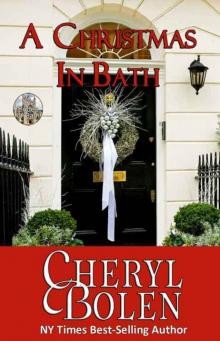 A Christmas In Bath
A Christmas In Bath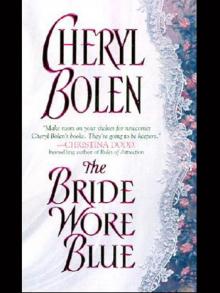 THE BRIDE WORE BLUE
THE BRIDE WORE BLUE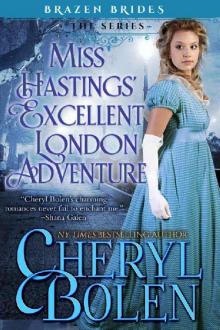 Miss Hastings' Excellent London Adventure (Brazen Brides Book 4)
Miss Hastings' Excellent London Adventure (Brazen Brides Book 4)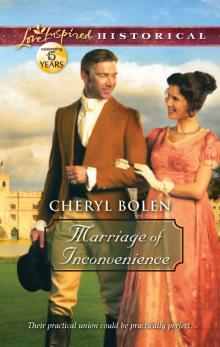 Marriage of Inconvenience
Marriage of Inconvenience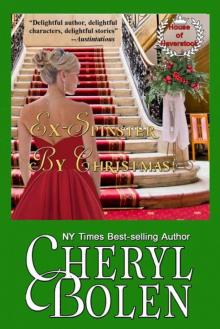 Ex-Spinster by Christmas: House of Haverstock, Book 4
Ex-Spinster by Christmas: House of Haverstock, Book 4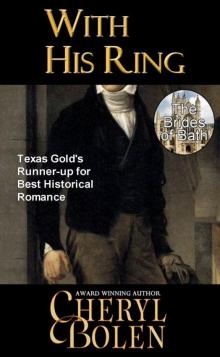 With His Ring (Brides of Bath Book 2)
With His Ring (Brides of Bath Book 2)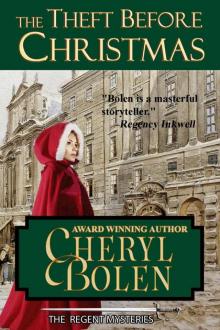 The Theft Before Christmas (The Regent Mysteries)
The Theft Before Christmas (The Regent Mysteries)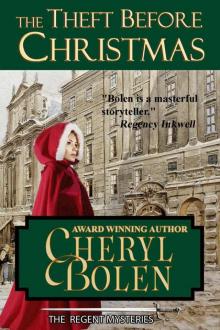 The Theft Before Christmas
The Theft Before Christmas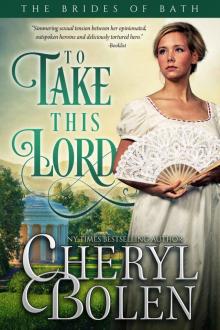 To Take This Lord (The Brides of Bath Book 4)
To Take This Lord (The Brides of Bath Book 4)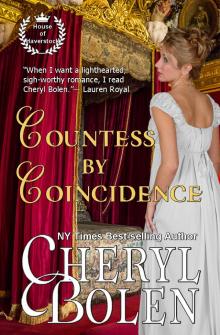 Countess by Coincidence
Countess by Coincidence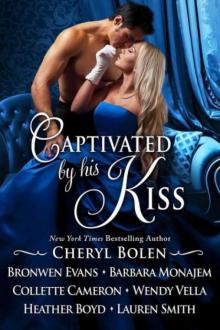 Captivated by His Kiss: A Limited Edition Boxed Set of Seven Regency Romances
Captivated by His Kiss: A Limited Edition Boxed Set of Seven Regency Romances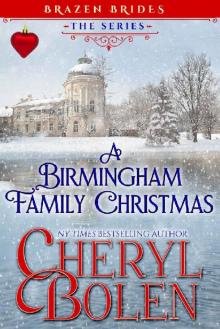 A Birmingham Family Christmas (Brazen Brides Book 5)
A Birmingham Family Christmas (Brazen Brides Book 5)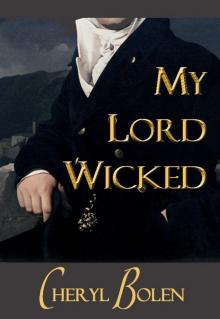 My Lord Wicked (Historical Regency Romance)
My Lord Wicked (Historical Regency Romance)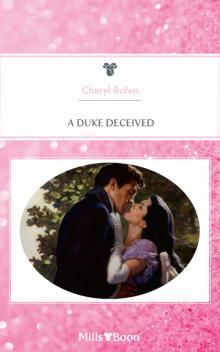 A Duke Deceived
A Duke Deceived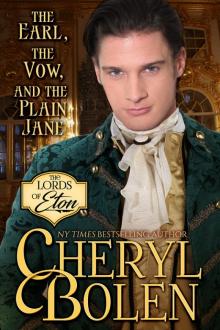 The Earl, the Vow, and the Plain Jane
The Earl, the Vow, and the Plain Jane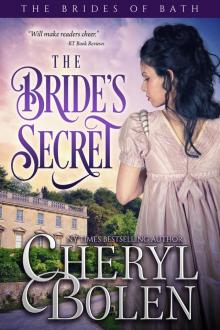 The Bride's Secret
The Bride's Secret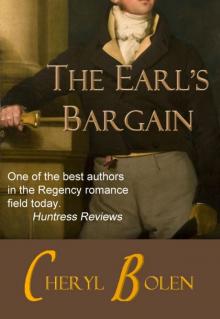 The Earl's Bargain (Historical Regency Romance)
The Earl's Bargain (Historical Regency Romance)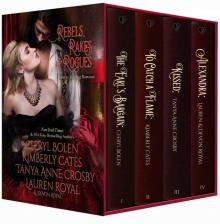 Rebels, Rakes & Rogues
Rebels, Rakes & Rogues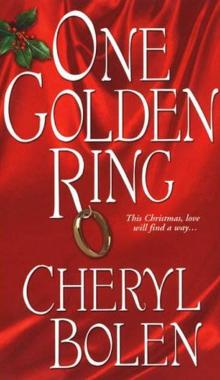 One Golden Ring
One Golden Ring